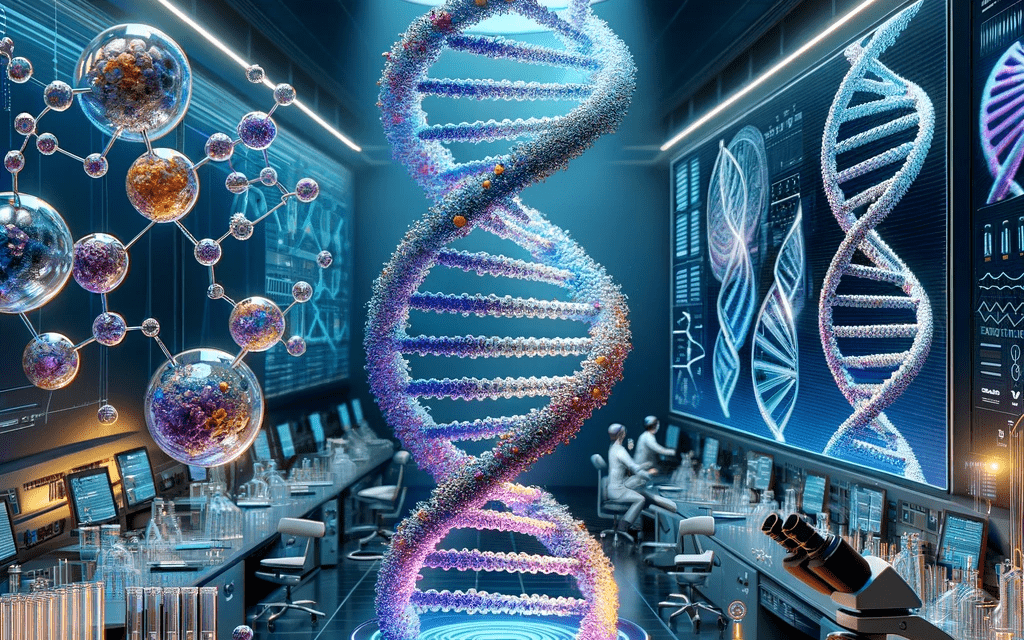Ultimate Guide: Long-Range DNA Polymerases Compared

Amplifying DNA, especially long sequences, is essential in molecular biology. By making multiple copies of specific DNA segments, scientists can have enough material for analysis or experiments. This process relies on special enzymes called DNA polymerases, which come in various forms tailored to specific tasks.
Among these, long-range DNA polymerases stand out for their ability to replicate unusually long stretches of DNA. This capability is crucial in fields like medical research, forensics, and genetic engineering. As the demand for understanding and manipulating genetic material grows, the importance of these molecular tools cannot be overstated.
In this article, we compare long-range DNA polymerases from six leading biotechnology companies: Thermo Fisher, New England Biolabs (NEB), Roche, Sigma, Takara, and Agilent. These companies have invested heavily in creating DNA polymerases capable of handling long DNA templates—a challenging feat due to the inherent difficulties associated with amplifying lengthy sequences.
Challenges in Amplifying Long DNA Sequences
Amplifying longer DNA sequences poses several challenges:
- Increased Complexity: Longer sequences often have repetitive or complex structures.
- Higher Error Rates: There’s a greater likelihood of mutations during amplification.
- Polymerase Dissociation: The enzyme may detach from the DNA template prematurely.
To address these issues, selecting a DNA polymerase designed for long-range amplification is crucial. These specialized enzymes are engineered to handle long DNA templates effectively.
Comparative Analysis of Long-Range DNA Polymerases
Let’s explore the unique features and capabilities of the long-range DNA polymerases offered by these reputable companies.
1. Takara’s PrimeSTAR GXL DNA Polymerase
- Amplification Capacity:
- Up to 30 kb from human genomic DNA.
- Up to 40 kb from lambda DNA templates.
- Up to 13.5 kb from human cDNA templates.
- Advantages:
- Versatile for different DNA types.
- Ideal for researchers working with various templates.
2. Sigma’s KOD Hot Start DNA Polymerase
- Amplification Capacity:
- Up to 21 kb from genomic DNA templates.
- Up to 12 kb from genomic DNA.
- Up to 21 kb from plasmid and lambda DNA templates.
- Benefits:
- Flexible handling of different DNA types.
- Suitable for long-range amplification tasks.
3. Thermo Fisher’s Platinum SuperFi II DNA Polymerase
- Amplification Capacity:
- Up to 20 kb of DNA.
- Features:
- Performs well under challenging PCR conditions.
- Reliable for accurate long DNA amplification.
- Applications:
- Cloning, sequencing, and mutagenesis.
4. New England Biolabs (NEB) Q5 Hot Start High-Fidelity DNA Polymerase
- Designed For:
- Long or difficult amplification tasks.
- Highlights:
- Robust amplification in challenging conditions.
- High-fidelity copying ensures accurate DNA replication.
- Performance:
- Smooth copying of long and complex DNA sequences.
5. Roche’s KAPA HiFi HotStart DNA Polymerase
- Key Features:
- Ultra-high fidelity and efficiency.
- Specialization:
- Favored for Next-Generation Sequencing (NGS) library amplification.
- Advantages:
- Consistent coverage across different DNA regions.
- Reliable for a wide range of DNA templates.
6. Agilent’s PfuUltra II Fusion High-Fidelity DNA Polymerase
- Amplification Capacity:
- Up to 19 kb.
- Notable Attributes:
- High-fidelity enzyme for precise DNA copying.
- Ideal For:
- Tasks requiring accurate DNA replication, such as cloning and sequencing.
Factors to Consider When Choosing a Polymerase
While amplification capacity is important, other factors also influence the choice:
- Fidelity: Accuracy of DNA replication.
- Speed: Efficiency in amplifying DNA.
- Ease of Use: User-friendly protocols and stability.
- Cost: Budget considerations for projects.
The Future of DNA Amplification
The biotech industry is continuously pushing the boundaries of DNA amplification technology. Companies are innovating to provide enzymes that not only amplify long DNA sequences but also maintain high accuracy and reliability. This progress opens new avenues in genetic research and other crucial areas of science.
As researchers explore the capabilities of these advanced polymerases, they can delve deeper into genetic mysteries. The ongoing advancements in DNA polymerase technology set the stage for more sophisticated research, potentially leading to groundbreaking discoveries.
Conclusion
Choosing the right long-range DNA polymerase is essential for successful DNA amplification. While this comparison focuses on amplification capacity, it’s important to consider fidelity, speed, and practical application factors. The offerings from Thermo Fisher, NEB, Roche, Sigma, Takara, and Agilent represent significant strides in DNA amplification technology.
By leveraging these advanced enzymes, the scientific community moves closer to unlocking new knowledge, solving complex biological puzzles, and ultimately improving human health and understanding.
Keywords
DNA Amplification, Long-Range DNA Polymerases, Molecular Biology, Genetic Research, PCR, High-Fidelity Enzymes, Biotechnology Companies.
Disclaimer: The information presented in this article is for educational purposes and reflects findings as reported by the respective companies and research publications. For detailed information, please consult the original product documentation or a qualified professional.


